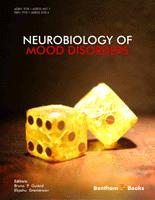
Photo from archive.org
Background: Obsessive-compulsive disorder (OCD) is associated with affective and cognitive symptoms causing personal distress and reduced global functioning. These have considerable societal costs due to healthcare service utilization. Objective: Our… Click to show full abstract
Background: Obsessive-compulsive disorder (OCD) is associated with affective and cognitive symptoms causing personal distress and reduced global functioning. These have considerable societal costs due to healthcare service utilization. Objective: Our aim was to assess the efficacy of pharmacological interventions in OCD and clinical guidelines, providing a comprehensive overview of this field. Methods: We searched the PubMed database for papers dealing with drug treatment of OCD, with a specific focus on clinical guidelines, treatments with antidepressants, antipsychotics, mood stabilizers, off-label medications, and pharmacogenomics. Results: Prolonged administration of selective serotonin reuptake inhibitors (SSRIs) is most effective. Better results can be obtained with a SSRI combined with cognitive behavioral therapy (CBT) or the similarly oriented exposure and response prevention (ERP). Refractory OCD could be treated with different strategies, including a switch to another SSRI or clomipramine, or augmentation with an atypical antipsychotic. The addition of medications other than antipsychotics or intravenous antidepressant administration needs further investigation, as the evidence is inconsistent. Pharmacogenomics and personalization of therapy could reduce treatment resistance. Conclusions: SSRI/clomipramine in combination with CBT/ERP is associated with the optimal response compared to each treatment alone or to other treatments. New strategies for refractory OCD are needed. The role of pharmacogenomics could become preponderant in the coming years.
Journal Title: Current Neuropharmacology
Year Published: 2018
Link to full text (if available)
Share on Social Media: Sign Up to like & get
recommendations!